"I hope I inspire people who hear. Hearing people have the ability to remove barriers that prevent deaf people from achieving their dreams."
- Marlee Matlin
BKB is solution-driven and, sometimes, the solution. This is especially true in the case of the BKB hearing-impaired training and employment programme. More than four million deaf or hard-of-hearing South Africans have limited employment opportunities available. In 2013, while listening to a discussion on the radio regarding people with disabilities, Isak Staats, BKB General Manager: Wool and Mohair, recognised that BKB could potentially offer opportunities to hearing-impaired individuals, and by identifying and harnessing their unique qualities, the programme was born. The sensory ability of the hearing impaired through touch are most often far above standard, making the hearing impaired ideal candidates in a work environment where a heightened tactile perception is of great importance.
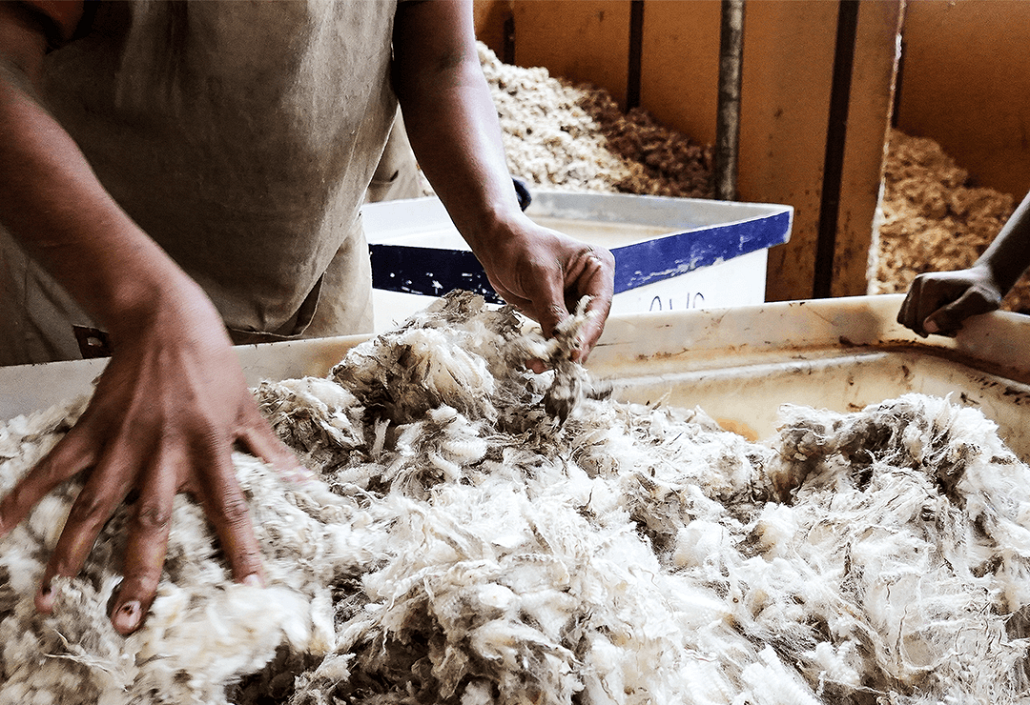
BKB's core business is a natural fit for people with this fine sensory ability. "People with hearing disabilities are uniquely suited to our industry," Staats said in an interview with Elizabeth van Delden in 2017. The hearing-impaired would take the sorting of fibre to a new level, and with the tactile acuteness, the ability to focus on the job at hand is increased.
BKB immediately started looking into the possibilities of specialised training. "We did extensive research, both locally and internationally, to learn what the rest of the world at large were doing in this regard," Staats recalls. Finding nothing suitable, Staats requested the BKB Human Resources Department develop a programme to benefit those with hearing disabilities. Together with the Production Management Institute of South Africa (PMI), which specialises in creating bespoke training solutions for workforces, a training programme designed specifically for BKB's hearing-impaired personnel was launched.
The programme itself is open to continuous adjustment and adaptation in accordance with the needs of the BKB wool warehouse. It not only teaches everything there is to know about wool, but it also includes social skill training, enabling them to manage small business enterprises.
"The formal training was implemented in 2013, and BKB was at that time, to my knowledge, the only wool warehouse in the world with a programme of this nature," says Staats. BKB offers a haven for the hearing-impaired to earn a living and to be celebrated for their unique skills while enabling a qualification aligned with their training.
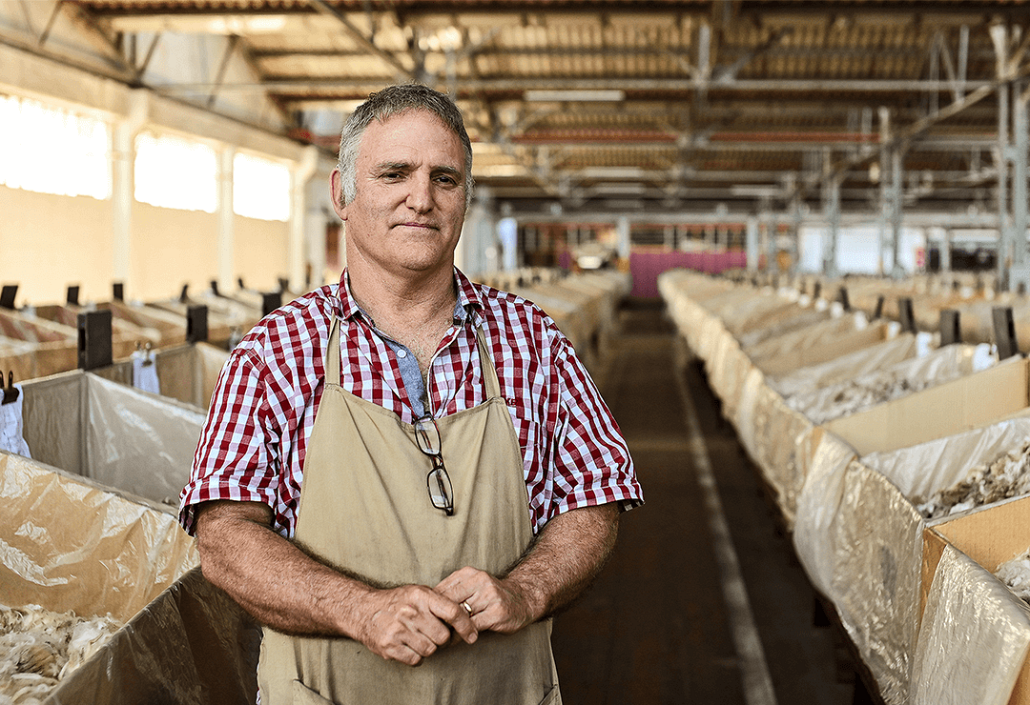
Leading the 'hearing-impaired programme' is Rensburg Aggenbach, who feels that the space BKB created for people with hearing disabilities, gives them pride to have the means to care for themselves and their families. Aggenbach remembers well how, as a young boy, he faced the challenge of being hard of hearing. "At school, there were different groups of us; the hard-of-hearing children did not mingle with the deaf children because we had to learn to speak and to listen and were not allowed to use sign language - at least this practice changed later on."
Aggenbach understands that being hearing-impaired in a hearing world can be challenging. As a child, his mother encouraged him to adjust to a hearing world, "She told me not to use my hands, 'Hou jou hande tuis!', I had to learn to listen.
Aggenbach matriculated in Worcester with a dream of becoming a preacher. However, his experience with one foot in the hearing world, and another in that of the hearing-impaired, taught him valuable things about the different cultures and the impact that hearing difficulties have on accents, especially referring to the different sign-language dialects he had to familiarise himself with. Ultimately, it all formed an important part of his journey towards where he is today; in the BKB Wool Warehouse as an interpreter.
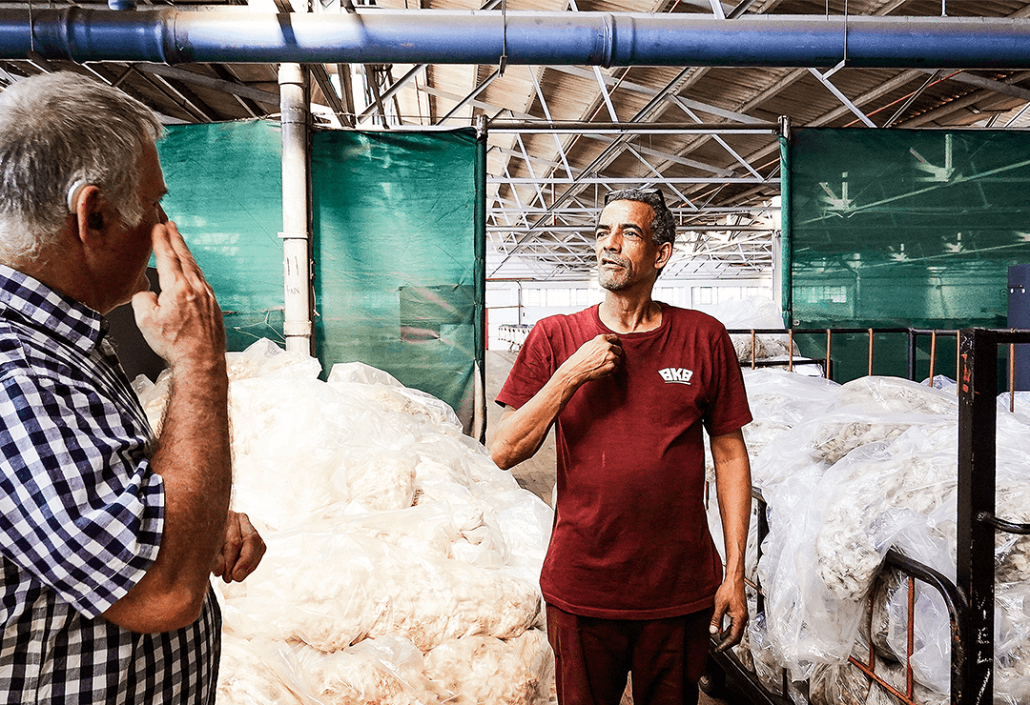
He assists with communication and interpretation between employees and employers. He navigates these sometimes-challenging situations, by remaining impartial. This role challenged him not to get involved in the staff's personal lives, and instead earn their trust. "I want to help the staff I work with progress and reach their own goals. I try to be an example, even to those who find it harder to work in a disciplined way. Being an interpreter is rewarding as well as challenging. It is hard to convey frustration and anger when translating. I need to have empathy and put myself in that person's situation," Aggenbach said.
There are currently 42 culturally diverse hearing-impaired employees working in the BKB Wool Warehouse. Every two years, we have a new intake of employees joining. Aggenbach explains that people find their niche in a specific section of the wool process. Some are sorting wool, others work with the display boxes, and others handle the newly arrived fleece, transferring it to the different areas while they become acquainted with the fine techniques of wool handling.
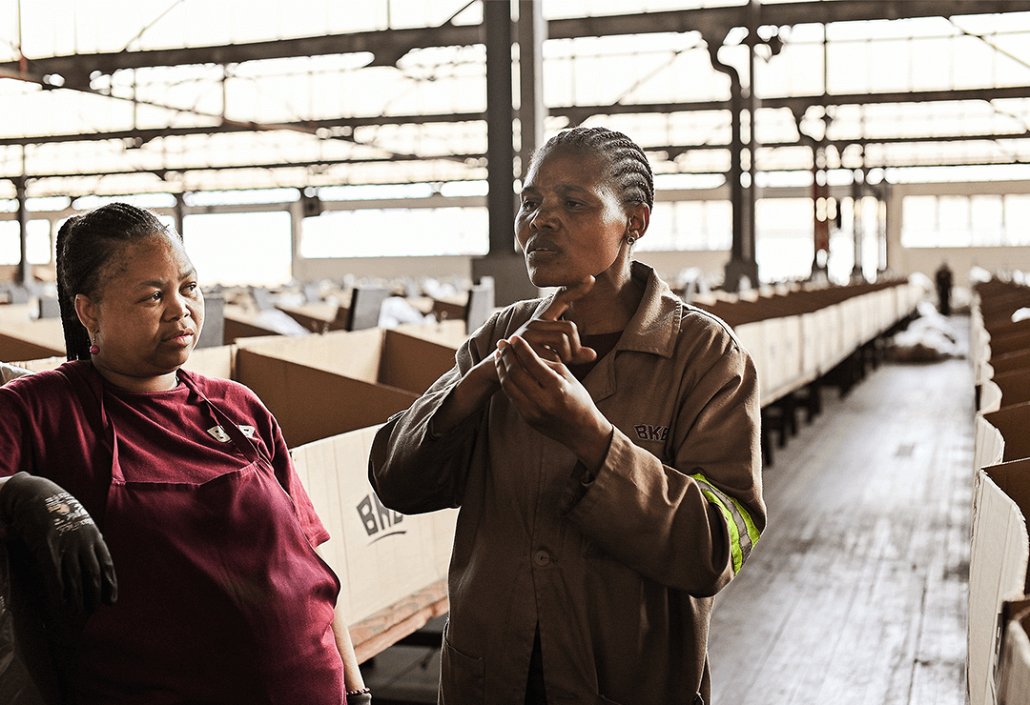
Wool bales that arrive unclassified, or samples that had been classified incorrectly, are sorted by hand. The wool sorters need to distinguish and classify the different wool fibres. In sorting through the different Merino fleece types, each fibre ends up in the correct bin, from bin number 1 to bin number 500. Considering that human hair is approximately 70 microns – a micron equal to 1/1000mm, the sorters need a particular tactile sensitivity and unique skill. They differentiate between wool that is of a 19 and finer microns, all the way to the coarse, 25 – 30 microns.
The sixteen wool sorters are divided into three teams, and they sort through three bales of wool per day. The routine of coming to work, knowing what is expected, offers a sense of security to these employees, "and they are excellent at sorting the wool," Staats adds. "One or two of the employees had advanced from 'first level' sorters to 'wool checkers’. The 'wool checker' is the person responsible for inspecting the sorted wool to ensure it has been assigned to the correct bin. Expanding their capabilities and the possibilities offered by an organisation like BKB, some hearing-impaired employees have also become general labourers and forklift operators.
Jano van Schalkwyk, Senior Wool Technician, has been with BKB for four years and says that BKB has opened his horizons, "BKB offers me a wealth of knowledge and experience in working with wool." As the Senior Wool Technician in charge of the wool bin-blending department, he works with the specially trained wool sorters daily. "All of the workers are talented in this regard. I find them eager to learn about the wool industry and enthusiastic about contributing." He works closely with people like Deon Abrahams, who is completely deaf and has found a home at BKB for over 30 years.
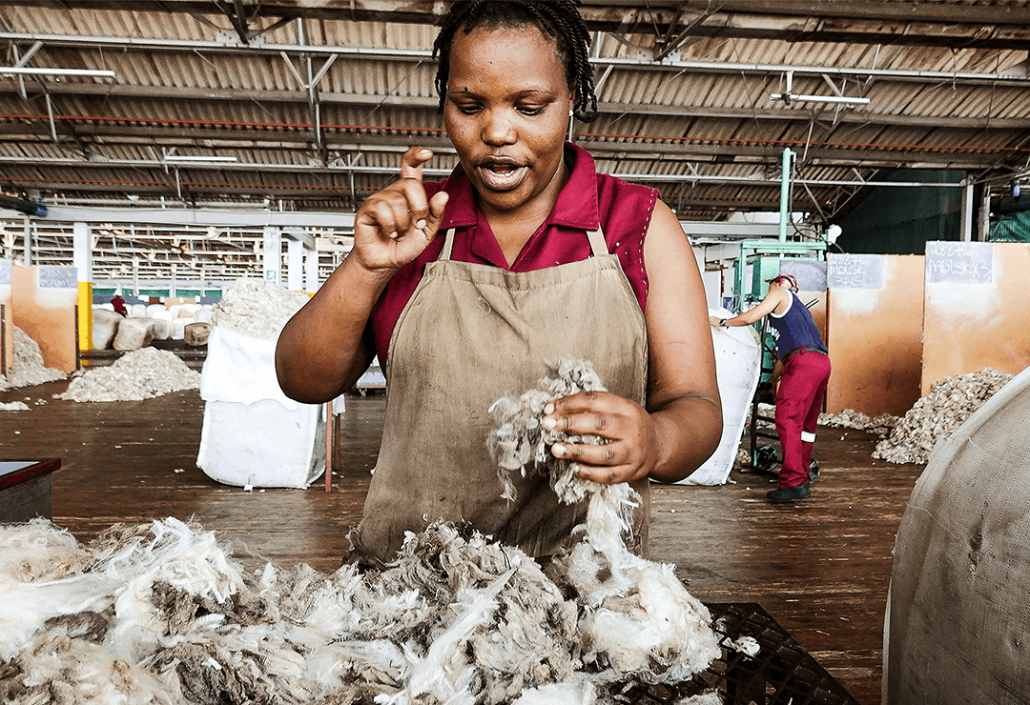
Van Schalkwyk admires the focus and ability to correctly sort large quantities of wool into no less than 500 different classes. He explains that the classing of the wool is crucial to the success of sales. Buyers need specific classes to blend and match their client's needs and applications. In addition, he explains that most of the local wool is sent abroad to be processed. Although Van Schalkwyk may someday wish to join the management team, he enjoys being part of the weekly wool auctions. "I am not quite ready to have my days filled with numbers yet," he says.
BKB has welcomed our hearing-impaired colleagues into the BKB family and community; and continues to drive the BKB values with this ever-growing initiative underpinning 'People, Planet, Profit'.